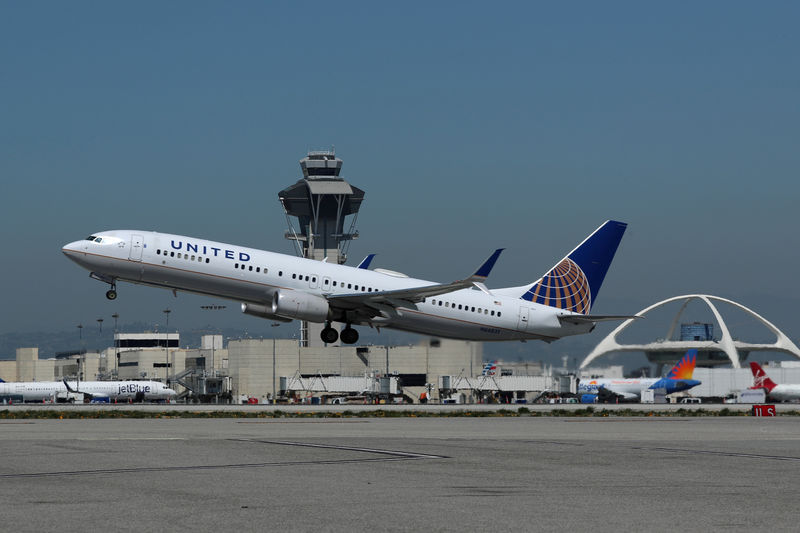This post was originally published on this site
https://i-invdn-com.investing.com/trkd-images/LYNXMPEJ1K0H8_L.jpg
CHICAGO (Reuters) – United Airlines launched on Tuesday a more than $100 million investment fund to support start-ups focused on the research and production of sustainable aviation fuel (SAF).
The Chicago-based carrier along with inaugural partners such as Air Canada, Boeing (NYSE:BA), General Electric (NYSE:GE) JPMorgan Chase (NYSE:JPM) and Honeywell (NASDAQ:HON) have invested in the United Airlines Ventures Sustainable Flight Fund, it said.
United said the fund was open to investment by companies across industries and would prioritize investment in new technology and “proven” producers.
The global aviation industry is under pressure to reduce carbon emissions and find ways to meet the 2050 net-zero emissions target set by the International Air Transport Association (IATA) in 2021.
The industry, which contributes about 2% of global carbon dioxide emissions, faces formidable challenges in reaching that goal as technologies such as electric and hydrogen-powered aircraft are still unproven.
Global airlines and aerospace manufacturers are betting on SAF, which is made in tiny quantities from feedstocks such as cooking oils and animal waste, and can cost two to five times more than conventional jet fuels.
United’s Chief Sustainability Officer Lauren Riley said the investment fund was aimed at scaling up the supply of SAF. The company would contribute up to 49% of the fund’s value, she said.
The carrier was also encouraging travelers to contribute to the fund by offering first 10,000 customers 500 miles each for their contribution.
Riley said the move was aimed at educating customers rather than generating funds from them.
“It’s more of an effort for us to educate,” she told Reuters.
United has pledged to reduce its carbon intensity by 50% by 2035 versus 2019.
It has purchased nearly 8 million gallons of SAF since 2016. However, as of last December, the total volume of SAF used in its operations remained less than 0.1% of its total aviation fuel usage.

